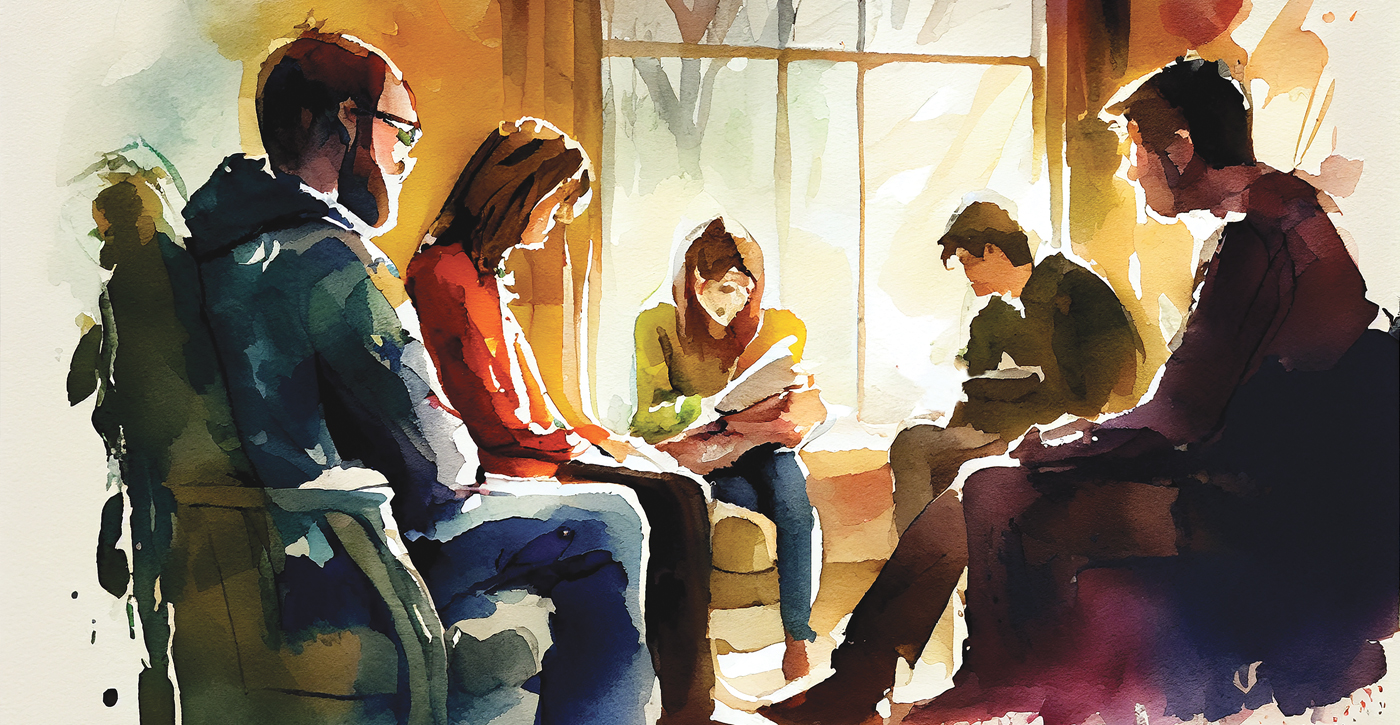After reading Arden Buck’s article, "What Do We Do Now?" (FJ April) I felt prompted to offer my own answer to the question, what do we do now? My answer is to pray (and worship), and to build up Quaker (witness) ministry.
I can testify that focusing on a personal devotional life grounded in corporate worship fulfills the promise of continuing revelation that is one of the distinctive hallmarks of Quaker spirituality. But if such "vision spirituality" is to answer the question of what to do, it needs support. If the traditions of Quaker ministry were alive and widespread among us, lots of us would have God’s answer to what we
do now.
"Ministry" lies along a continuum of religious experience, and it’s really the whole continuum that will provide God-breathed answers to the question, what do we do now. The continuum runs from openings through leadings to ministry. Openings are little insights into the truth, expressed most familiarly as vocal ministry in meeting for worship. Leadings are specific tasks laid upon us by God, often growing organically out of an opening. Ministries involve the constellation of whole-life activities that sustain a leading when it gets bigger than a single task and becomes part of your life’s work.
All three forms of continuing revelation thrive best when nurtured by personal devotional practice—prayer, meditation, study, etc.—and by corporate worship, discernment, and support.
When you work from a leading or call to ministry—that is, when you are doing something you know God wants you to do—the Holy Spirit unburdens you in two important ways. It releases you (mostly, anyway) from the temptation to address every concern and the guilt that comes from not doing enough. It also releases you from attachment to success and the frustration of (apparent) failure. When you’re following a leading, it pulls you back from over-commitment to primary commitment and it leaves the outcome of your service to the workings of the Spirit. These workings are mostly invisible, mysterious, and often more profound and far-reaching in effect than you could have personally planned.
God’s leadings are meant to flourish in a culture of eldership that recognizes and encourages them, that supports and guides the minister and helps you get through the troubles that service to God sometimes entails. In my experience, though, many meetings lack a vital culture of eldership. Thus, the corporate answer to the question, "What do we do now?" should be: recover and adapt the faith and practice of
Quaker ministry.
These traditions offer a religious philosophy and concrete techniques for inspiring, guiding, and nurturing right action. It gave us John Bellers, John Woolman, Lucretia Mott, Seebohm Rountree. When the culture of eldership is vital, then meetings have members that have followed leadings themselves, and know how to recognize when someone else is being led and how to help them answer the call and be faithful to it. They have experience helping Friends discern whether their leading is of God, with clearness committees for discernment. They know how to support leadings with minutes for service or travel and whatever else might be useful, especially with financial support. They know how to take a leading to quarterly meeting or even yearly meeting, if the leading requires forms of support that lie beyond the local resources. They know how to convene committees of support and/or oversight to help the minister remain faithful to the leading. And they know when to lay these committees down, recognizing that the minister’s service is complete.
One phrase sums up these practices of spiritual nurture for witness ministry: gospel order. Gospel order is the willingness—the faith—to let God show us what to do now (rather than a committee brainstorming session), and it is the individual and corporate practices that channel God’s continuing revelation into our hearts and minds, our hands and feet, our meetings and committees.
So the corporate answer to the question, "What do we do now?" is to build our committees and meetings into vehicles for gospel order, into bodies that look for and recognize, nurture, and support witness ministry. This involves all our committees, not just those for peace and social action.
Ministry and worship committees will be actively reviewing the needs of people who seem to be called to some service; holding clearness committees for discernment of leadings; convening committees for oversight and support when appropriate; writing draft minutes for travel or service to present to the meeting for business in worship when appropriate. Religious education committees will be providing programs on the faith and practice of Quaker ministry, on the history of this tradition among Friends, on Quaker ministers who can serve as models (John Woolman and his Journal are a great place to start). Finance committees will consider developing a fund that could be used to help release ministers from economic obstacles to service when it’s needed.
Our belief in God’s continuing revelation and in our direct relationship with the Inner Guide holds that God is already showing us what we should do now. Right now, God is knocking on the hearts of some of us (not necessarily all of us all of the time), hoping we will answer—holding out an answer that will lead some Friends into an opening, a leading, a ministry of witness to God’s love, peace, and justice. What we should do now is listen, in prayer and worship. And if we hear a knock, open the door and invite the Answerer in.
Steven Davison
Yardley, Pa.


